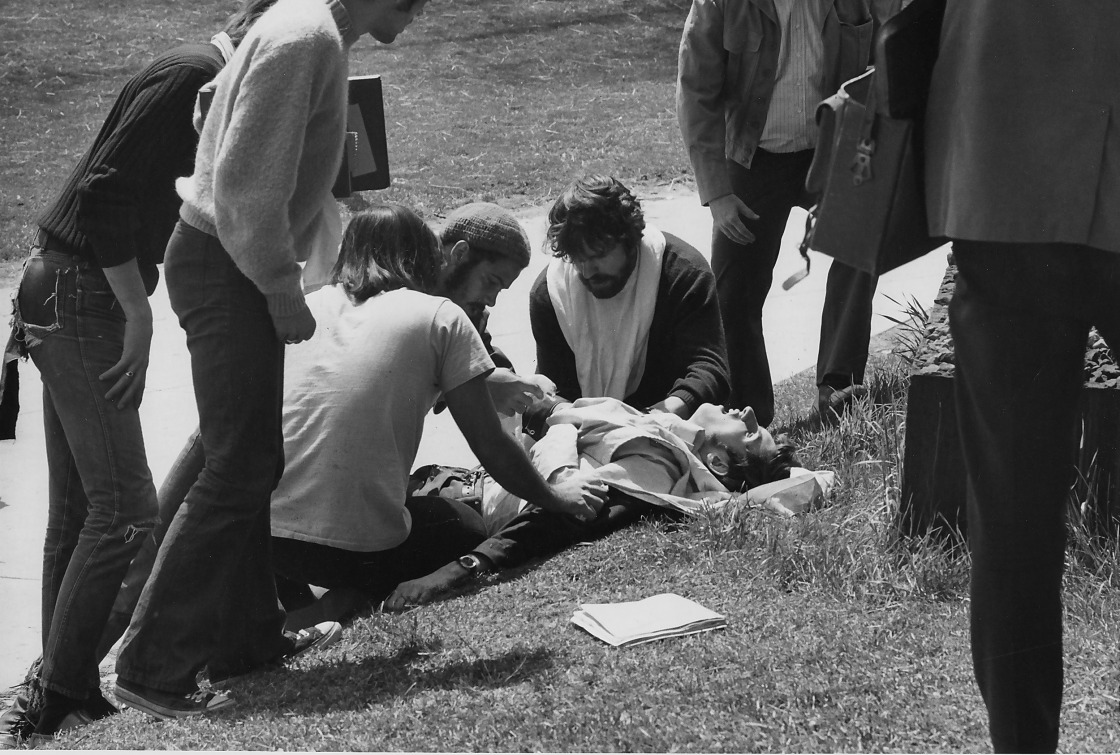The voices of anti-war are usually not heard in mainstream news as the media companies are resistant to giving airtime because they are fearful of alienating the sponsors that pay for the airtime. Often media production companies have editorial policies and are reluctant to air such topics because they are fearful of what controversy may arise. There have been situations where people will gather for protests causing panic and social uproar. Unfortunately, freedom of the press is not a protected right in all areas of the world. An example of a rally gone wrong was in May of 1970 when 13 Kent State University students were shot by National Guardsman at a peaceful protest against wars. Four of those Kent State students passed away. “That event, combined with Nixon's invasion of Cambodia, led to protests at more than 1,300 college campuses, with some 500 closed by student and faculty strikes.” This horrific moment in time was aired because of the violent repercussions of a peaceful protest against wars.
We do not hear of these websites simply because there is government censorship keeping the voices of these groups hushed. Most of the public is drawn to controversy, and the media focuses on what draws in large audiences. Because anti-war websites don't carry the impact that the larger funded websites do, these websites are not on larger search engines.
Seemingly, the government wants its people to be more like sheep and follow the herd. The less controversy, the better. The mainstream media has a tendency to stick with one-sided political opinions. The reality of war is not a topic that a large number of viewers are willing to seek out. War is often downplayed because of its devastating effects. In order to be more informed about these antiwar websites, people need to seek out media sources beyond the mainstream options.




No comments:
Post a Comment